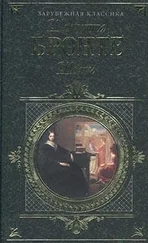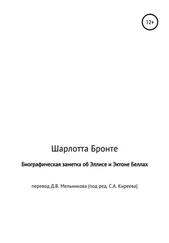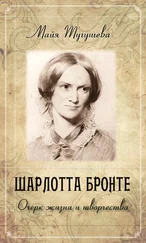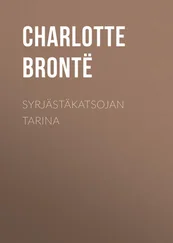Шарлотта Бронте - Villette
Здесь есть возможность читать онлайн «Шарлотта Бронте - Villette» — ознакомительный отрывок электронной книги совершенно бесплатно, а после прочтения отрывка купить полную версию. В некоторых случаях можно слушать аудио, скачать через торрент в формате fb2 и присутствует краткое содержание. Год выпуска: 2014, Издательство: epubBooks Classics, Жанр: Исторические любовные романы, на английском языке. Описание произведения, (предисловие) а так же отзывы посетителей доступны на портале библиотеки ЛибКат.
- Название:Villette
- Автор:
- Издательство:epubBooks Classics
- Жанр:
- Год:2014
- ISBN:нет данных
- Рейтинг книги:3 / 5. Голосов: 1
-
Избранное:Добавить в избранное
- Отзывы:
-
Ваша оценка:
- 60
- 1
- 2
- 3
- 4
- 5
Villette: краткое содержание, описание и аннотация
Предлагаем к чтению аннотацию, описание, краткое содержание или предисловие (зависит от того, что написал сам автор книги «Villette»). Если вы не нашли необходимую информацию о книге — напишите в комментариях, мы постараемся отыскать её.
Villette — читать онлайн ознакомительный отрывок
Ниже представлен текст книги, разбитый по страницам. Система сохранения места последней прочитанной страницы, позволяет с удобством читать онлайн бесплатно книгу «Villette», без необходимости каждый раз заново искать на чём Вы остановились. Поставьте закладку, и сможете в любой момент перейти на страницу, на которой закончили чтение.
Интервал:
Закладка:
The interview would be short, of course: he would say to me just what he had said to each of the assembled pupils; he would take and hold my hand two minutes; he would touch my cheek with his lips for the first, last, only time—and then—no more. Then, indeed, the final parting, then the wide separation, the great gulf I could not pass to go to him—across which, haply, he would not glance, to remember me.
He took my hand in one of his, with the other he put back my bonnet; he looked into my face, his luminous smile went out, his lips expressed something almost like the wordless language of a mother who finds a child greatly and unexpectedly changed, broken with illness, or worn out by want. A check supervened.
"Paul, Paul!" said a woman's hurried voice behind, "Paul, come into the salon; I have yet a great many things to say to you—conversation for the whole day—and so has Victor; and Josef is here. Come Paul, come to your friends."
Madame Beck, brought to the spot by vigilance or an inscrutable instinct, pressed so near, she almost thrust herself between me and M. Emanuel.
"Come, Paul!" she reiterated, her eye grazing me with its hard ray like a steel stylet. She pushed against her kinsman. I thought he receded; I thought he would go. Pierced deeper than I could endure, made now to feel what defied suppression, I cried—
"My heart will break!"
What I felt seemed literal heart–break; but the seal of another fountain yielded under the strain: one breath from M. Paul, the whisper, "Trust me!" lifted a load, opened an outlet. With many a deep sob, with thrilling, with icy shiver, with strong trembling, and yet with relief—I wept.
"Leave her to me; it is a crisis: I will give her a cordial, and it will pass," said the calm Madame Beck.
To be left to her and her cordial seemed to me something like being left to the poisoner and her bowl. When M. Paul answered deeply, harshly, and briefly—"Laissez–moi!" in the grim sound I felt a music strange, strong, but life–giving.
"Laissez–moi!" he repeated, his nostrils opening, and his facial muscles all quivering as he spoke.
"But this will never do," said Madame, with sternness. More sternly rejoined her kinsman—
"Sortez d'ici!"
"I will send for Père Silas: on the spot I will send for him," she threatened pertinaciously.
"Femme!" cried the Professor, not now in his deep tones, but in his highest and most excited key, "Femme! sortez à l'instant!"
He was roused, and I loved him in his wrath with a passion beyond what I had yet felt.
"What you do is wrong," pursued Madame; "it is an act characteristic of men of your unreliable, imaginative temperament; a step impulsive, injudicious, inconsistent—a proceeding vexatious, and not estimable in the view of persons of steadier and more resolute character."
"You know not what I have of steady and resolute in me," said he, "but you shall see; the event shall teach you. Modeste," he continued less fiercely, "be gentle, be pitying, be a woman; look at this poor face, and relent. You know I am your friend, and the friend of your friends; in spite of your taunts, you well and deeply know I may be trusted. Of sacrificing myself I made no difficulty but my heart is pained by what I see; it must have and give solace. Leave me! "
This time, in the " leave me " there was an intonation so bitter and so imperative, I wondered that even Madame Beck herself could for one moment delay obedience; but she stood firm; she gazed upon him dauntless; she met his eye, forbidding and fixed as stone. She was opening her lips to retort; I saw over all M. Paul's face a quick rising light and fire; I can hardly tell how he managed the movement; it did not seem violent; it kept the form of courtesy; he gave his hand; it scarce touched her I thought; she ran, she whirled from the room; she was gone, and the door shut, in one second.
The flash of passion was all over very soon. He smiled as he told me to wipe my eyes; he waited quietly till I was calm, dropping from time to time a stilling, solacing word. Ere long I sat beside him once more myself—re–assured, not desperate, nor yet desolate; not friendless, not hopeless, not sick of life, and seeking death.
"It made you very sad then to lose your friend?" said he.
"It kills me to be forgotten, Monsieur," I said. "All these weary days I have not heard from you one word, and I was crushed with the possibility, growing to certainty, that you would depart without saying farewell!"
"Must I tell you what I told Modeste Beck—that you do not know me? Must I show and teach you my character? You will have proof that I can be a firm friend? Without clear proof this hand will not lie still in mine, it will not trust my shoulder as a safe stay? Good. The proof is ready. I come to justify myself."
"Say anything, teach anything, prove anything, Monsieur; I can listen now."
"Then, in the first place, you must go out with me a good distance into the town. I came on purpose to fetch you."
Without questioning his meaning, or sounding his plan, or offering the semblance of an objection, I re–tied my bonnet: I was ready.
The route he took was by the boulevards: he several times made me sit down on the seats stationed under the lime–trees; he did not ask if I was tired, but looked, and drew his own conclusions.
"All these weary days," said he, repeating my words, with a gentle, kindly mimicry of my voice and foreign accent, not new from his lips, and of which the playful banter never wounded, not even when coupled, as it often was, with the assertion, that however I might write his language, I spoke and always should speak it imperfectly and hesitatingly. "'All these weary days' I have not for one hour forgotten you. Faithful women err in this, that they think themselves the sole faithful of God's creatures. On a very fervent and living truth to myself, I, too, till lately scarce dared count, from any quarter; but―look at me.",
I lifted my happy eyes: they were happy now, or they would have been no interpreters of my heart.
"Well," said he, after some seconds' scrutiny, "there is no denying that signature: Constancy wrote it: her pen is of iron. Was the record painful?"
"Severely painful," I said, with truth. "Withdraw her hand, Monsieur; I can bear its inscribing force no more."
"Elle est toute pâle," said he, speaking to himself; "cette figure–là me fait mal."
"Ah! I am not pleasant to look at―?"
I could not help saying this; the words came unbidden: I never remember the time when I had not a haunting dread of what might be the degree of my outward deficiency; this dread pressed me at the moment with special force.
A great softness passed upon his countenance; his violet eyes grew suffused and glistening under their deep Spanish lashes: he started up; "Let us walk on."
"Do I displease your eyes much ?" I took courage to urge: the point had its vital import for me.
He stopped, and gave me a short, strong answer; an answer which silenced, subdued, yet profoundly satisfied. Ever after that I knew what I was for him ; and what I might be for the rest of the world, I ceased painfully to care. Was it weak to lay so much stress on an opinion about appearance? I fear it might be; I fear it was; but in that case I must avow no light share of weakness. I must own great fear of displeasing—a strong wish moderately to please M. Paul.
Whither we rambled, I scarce knew. Our walk was long, yet seemed short; the path was pleasant, the day lovely. M. Emanuel talked of his voyage—he thought of staying away three years. On his return from Guadaloupe, he looked forward to release from liabilities and a clear course; and what did I purpose doing in the interval of his absence? he asked. I had talked once, he reminded me, of trying to be independent and keeping a little school of my own: had I dropped the idea?
Читать дальшеИнтервал:
Закладка:
Похожие книги на «Villette»
Представляем Вашему вниманию похожие книги на «Villette» списком для выбора. Мы отобрали схожую по названию и смыслу литературу в надежде предоставить читателям больше вариантов отыскать новые, интересные, ещё непрочитанные произведения.
Обсуждение, отзывы о книге «Villette» и просто собственные мнения читателей. Оставьте ваши комментарии, напишите, что Вы думаете о произведении, его смысле или главных героях. Укажите что конкретно понравилось, а что нет, и почему Вы так считаете.











